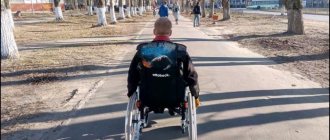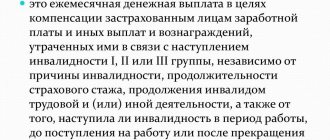If you have retired and are planning to migrate to the homeland of your ancestors in Israel, then it will be useful for you to learn all the intricacies of pension legislation in this amazing, prosperous country in order to avoid unnecessary worries or disappointments already on the spot. Although a pension in Israel seems like a tempting prospect, the process of calculating it has its own nuances, without knowing which you can get into an unpleasant situation as a repatriate.
Retirement age
An Israeli can legally retire after turning 67 years old. For the female part of the population, starting from 2021, the retirement age is planned to be increased - from 62 to 64, depending on the date of birth. In some institutions and organizations, pensions are calculated from the age of 67, regardless of gender.
In 2021, the Israeli Ministry of Finance approved a bill to raise the retirement age for women to 65 years. The increase will take place according to the following scheme.
Plan to raise the retirement age for women in Israel
In Russia, women retire at the age of 55 and men at 60, but as a result of the pension reform, these figures were increased to 60 and 65 years. Sometimes the retirement age is different, and this directly depends on the working conditions in which the person had to work.
Russia plans to increase the retirement age to 65 for both sexes. But even so, Russian pensioners will have to work for several more years after arriving in Israel.
This age limit for pensioners in Israel in 2021 was established due to the average life expectancy, which in the Promised Land is 82 years, which is significantly higher than in Russia (70 years), as well as in the United States of America (78 years) and Great Britain (81 years old).
By the way, according to this indicator, only Japan is ahead of all countries, where people live on average to almost 84 years. Nevertheless, pensioners in the state have time to both work, benefiting society, and relax with pleasure from the labors of their righteous people.
What is the retirement age in Israel for women and men?
Israel's pension system is in the process of reform. Until 2017, women could retire at age 62, and men had to work until age 67. Given the high life expectancy of Israelis, the new pension law raised the retirement age for women to 64. Men still remain in the workforce until they are 67 years old.
The government is faced with the task of further raising the age limit. It is planned that by 2030, both men and women will retire at the same time when they reach 67 years of age.
However, retirement is not mandatory. Older people can continue to work. To encourage the refusal of pension payments, the government approved an increase of 5% of the base rate for each year of such deferral.
Types of pension payments in Israel
A pension in Israel consists of 2 parts. The 1st part is paid by the department or institute of national insurance (Bituach Leumi). You can find detailed information here: btl.gov.il/RussianHomePage/Pages/Home.aspx.
The second part of payments is savings from the Pension Fund, which were collected from a person if he worked officially.
Benefits from Bituach Leumi
The employer must make regular contributions to Bituach Leumi.
Bituach Leumi building
The National Insurance Institute is responsible for providing social protection to citizens. His main list of responsibilities includes:
- Control over the provision of a living wage for persons who cannot provide for themselves due to disability or incapacity for another reasoned reason.
- Monitoring payment of contributions from the working population.
- Payments for all social benefits and pensions.
It is important to note that part of the pension that accumulates can, if necessary, be transferred anywhere in the world, but old-age benefits can only be received if you are permanently residing in Israel.
Payments from the pension fund
There is a law that says the following: if a person works (no matter for whom or where), then the employer undertakes to provide him with a pension fund. This means that a small percentage (approximately 5%) will be deducted from the employee’s salary. It doesn’t matter whether a person changed jobs or not. If he has worked all his life, then he has every right to receive payments from the pension fund.
The size of the pension depends on the salary level and the total length of service in Israel. Those repatriates who came to Israel in the 90s or early 2000s and worked in small companies did not always have contributions to the Russian pension fund. Now they can also count on additional payments. The total amount must be equal to the cost of living.
Savings form the basis of a pension. The average pension of such citizens ranges from 500–800 euros.
If a person is a new immigrant, and he did not work in Israel, but carefully paid all the necessary contributions, then, upon reaching retirement age, he is entitled to receive benefits.
According to the pensioners themselves, in order to earn a decent pension for themselves, it is necessary to come to Israel as early as possible - before the age of 40.
Repatriation to Israel
Please note that the reason for moving, including at retirement age, may be repatriation to Israel. The right to it is given to every Jew in accordance with the Law of Return No. 5710-1950 of 07/06/1950 (חוק השבות).
For the purpose of applying the legislation on repatriation, Jews who have been given the right to return are recognized only as follows:
- halakhic Jews, that is, those born of a Jewish mother;
- those who underwent conversion (the rite of conversion of a “goy” to Judaism) and abandoned their previous religion or did not belong to any confession.
At the same time, even for those who have reached retirement age, the Russian Federation pension during repatriation can be preserved.
To simplify the process of return, the Ministry of Aliyah and Integration has been created in the country, and in most countries there are branches of the Jewish Agency (Sokhnut), where you can get all the necessary advice and assistance in moving.
In addition, repatriated pensioners will be able to qualify for discounts for:
- payment for television;
- rental of real estate and payment of land tax;
- traveling on public transport;
- purchasing medicines from the social basket.
The benefits and benefits provided for repatriates are described in detail in the article: “What benefits and benefits can repatriates in Israel expect in 2021?”
Pensions for repatriates
There is no special program for repatriated pensioners in Israel. If they managed to move to Israel long before reaching retirement age, they will be able to earn insurance coverage and receive a pension on the same terms as native Israelis.
In case of relocation at pre-retirement or retirement age, repatriates may qualify for a special old-age benefit for immigrants, as well as an additional payment up to the minimum subsistence level, not exceeding NIS 3,228 in total.
In addition to the pension benefit itself, repatriated pensioners have the right to receive:
- heating season allowance in the amount of 562 shekels annually;
- additional payment for rent in the amount of 500 shekels monthly;
- an allowance for Holocaust victims in the amount of 3.6 thousand shekels;
- supplement for disability.
In addition, the current agreement between Russia and Israel on the payment of pensions allows Russian repatriates who moved to Israel under the Law of Return to retain their Russian pension in full.
Amount of minimum and average pension
In 2021, the average pension is NIS 5,300. For a single person, the basic monthly benefit is NIS 1,554, and for a married couple – NIS 2,355.
If a person is over 80 years old, then the benefit amount is 1640 shekels, and for a married couple - 2400 shekels. More detailed information can be obtained here: btl.gov.il/RussianHomePage/Benefits_ru/Vatikim_ru/Pages/shiureyHaKizva_ru.aspx.
Pension amounts upon retirement at age 67 (in shekels)
By profession
Retired judges receive the largest pension – 92,000 shekels/month. This includes all bonuses and various allowances. The monthly allowance for judges of religious courts is 40,000 shekels.
Pension for former security forces (except IDF) - about 19,000 shekels/month. Retired officials of the State Comptroller's Department receive a monthly allowance of NIS 14,900.
To understand what pension will be paid after repatriation, you need to take into account several factors.
Benefits and allowances
The benefit is a percentage of the average wage in the country, the minimum rate is 16%. Once the required age is reached, a 2% annual premium is added. If the family has minor children and an unemployed spouse without a pension, then the premium is 50%. However, the bonuses in any case do not affect the fact that the maximum old-age benefit still cannot be higher than 24% of the average Israeli salary.
This part of the pension benefit is received by male representatives who have turned 70 years old, and by the female part of the population - depending on the year of birth.
Old-age benefits can be received by Israeli citizens with government insurance. According to the law, insured persons include residents of this state born on its territory, or repatriates whose age is up to 60-62 years and who have worked in Israel for at least 5 years. Old age benefits are paid monthly.
If a Russian citizen moved to Israel without renouncing citizenship before reaching retirement age, he will be entitled to social benefits until he reaches the appropriate age and is transferred to pension subsidies.
The person applying for benefits must be located in Israel. Detailed information on the amount of the supplement is available on the website of the National Insurance Institute.
In some cases, the premium for providing a permanent residence may be paid even when it is located outside the borders of Israel.
A person receiving benefits from Bituach Leumi can travel abroad for a period of no more than 72 days, otherwise he loses the right to social benefits. If this is not a social benefit, then he can stay abroad for up to six months.
The National Insurance Institute automatically receives a message that the person has left, so there is no way to receive benefits from Bituach Leumi while living abroad. Another thing is the pension that a person has earned.
Also find out what other benefits you can get in Israel.
Pension size in Israel in 2021
First, let’s look at what the size of payments depends on:
- age of the pensioner;
- seniority;
- position held and qualifications;
- amounts of contributions to pension, insurance and reserve funds.
The state does not officially report the size of the pension, but according to private research, in 2021 it averages 113,837 rubles per month
The Israeli state does not report how much pensioner citizens receive on average. However, private studies were carried out. According to them, the average pension in Israel is 5,300 shekels or 113,837 rubles.
The data obtained also indicate that women receive pension payments less than men. This may be due to the fact that women's work is valued less, plus they retire earlier. As a result, men receive about 6,300 shekels, and women - 3,800.
There is also no legally established minimum pension in the Jewish state. There is only a basic value:
- 2,355 shekels (50,582 rubles) for a married couple where the second spouse does not receive a retirement pension;
- 1,554 shekels (33,163 rubles) for a single person;
- 1,640 shekels (35,225 rubles) for single citizens over 80 years of age;
- 2,400 shekels (RUB 51,549) for a married couple;
- supplement of 492 shekels (10,567 rubles) for each minor child.
What else can you add to your pension?
But the size of the pension is not the only thing a repatriate needs to think about. A unique reward for long-term work is a one-time payment. It is received upon retirement, and it is very easy to calculate its amount. It is enough to multiply the average salary by the length of service (at least 10 years).
In addition, an Israeli pensioner can add additional payments to his pension if he served in the Israeli army. In this state, both men and women can serve in the army. Accordingly, such additional payment is received regardless of gender.
The size of the army pension depends on the age at which the person was demobilized, the period and place of service. The state pays the most to pensioners who served in IDF combat units and were participants in combat operations.
In addition, there is a payment to those who suffered and became disabled during terrorist attacks in Israel, as well as in Jewish settlements in Palestine.
Additional concern for the elderly in Israel is expressed in the fact that they pay less than others for the use of land, television channels and some other mandatory payments.
Main benefits for pensioners:
- Council tax discount. Everyone who lives in a rented or their own apartment pays this tax. Its size depends on the city: in some places it is smaller, in others it is larger. But the tax also depends on the total area of the apartment: the larger the size of the living space, the more tax you have to pay. The discount amount is 25%. Even if only one person in a married couple is a pensioner, this discount applies. If both spouses are pensioners, then you can get a 35% discount per 100 sq. m. m. If a person is a social pensioner, then he does not pay municipal tax at all.
- Discount on electricity bills. This is the most expensive utility payment in Israel. From this amount, the country's authorities withdraw 40% from the social pensioner. But not indefinitely: if the electricity bill is very high, then the discount no longer applies.
- Benefit for medicines. The discount on medicines for ordinary pensioners is small. Social pensioners are given a 50% discount.
- Discounts on travel on public transport. All pensioners, regardless of their status, pay 50% less for travel. On the railway, this discount begins to apply even before retirement age.
But there are also additional benefits. If a retiree comes to a museum or national park, he also pays less. The exact amount of the discount must be clarified on site.
For pensioners there are discounts when using the swimming pool and country club.
Additional pension increase
If a person has worked in Israel for less than 10 years and does not have much experience, then he will receive a basic amount from the state - 1.5 thousand shekels (about $400). But that is not all.
With more than 10 years of experience, he receives an increase (2%) for each year.
If a pensioner has his own apartment, then he can live on this amount. Such people are considered “social pensioners” in Israel and have additional discounts and benefits.
If a person does not have his own home, then in addition to the specified amount he receives an additional payment from the Ministry of Construction. He is categorized as both “Social Pensioner” and “In Need of Housing”. The amount of the subsidy received is determined individually and depends on the city (in some cities in Israel you can rent an apartment very expensively, in others it is relatively cheap), as well as on the characteristics of a particular person’s life.
A single person receives about 799 shekels/month, a retired couple has from 999 to 1201 shekels ($261–313).
This amount may not be enough to rent a house and then you have to add from your pension. Therefore, a person living on social benefits must manage his money more carefully and not throw it left and right.
Having such an allowance, a person can earn extra money. But even in this case, he must count on receiving a certain amount. If he earns a higher salary, he may lose the bonus to his pension. To avoid this, you need to find out in advance up to what specific amount you can earn extra money.
How to get a pension with a supplement
The maximum payment amount is NIS 3,000. This amount is less than the cost of living. Against this background, the pensioner has the right to submit a request for additional payment to the National Insurance Institute.
You can submit such an application in the following cases:
- If a person is single and does not have any savings, or the total amount of his savings is no more than 30.0 thousand shekels (9.0 thousand US dollars).
- If a couple of pensioners have no more than 50.0 thousand shekels (13.0 thousand US dollars) in their joint account.
New repatriates are also entitled to an additional payment.
How do pensioners live in Israel?
Israeli pensioners who have worked in the country for ten years or longer can count on a carefree old age. Other pensioners face financial difficulties - the pension benefit is just enough to cover living expenses. Some of them do not hide the fact that sometimes they have to eat in soup kitchens. Also, many are looking for additional work for retirees. Many of them came to Israel with the expectation of a dignified old age and a well-deserved rest, but life here turns out to be a complete disappointment.
All Israeli citizens upon reaching retirement age are entitled to receive a pension certificate. It will be automatically sent by mail. There are cases when a pensioner did not receive a certificate during automatic mailing. In this case, you need to submit a corresponding application to Bituach Leumi. You should also submit a separate application here if you want to have a document in English.
The pensioner's ID must always be carried along with an identity document. Sometimes you are asked to present both documents to receive a discount.
On the back of a senior citizen's ID card is a list of benefits they can count on. Below is a reference table with discount amounts and brief characteristics.
| Type of discount | Amount of discount | Note |
| Directions | 50% | Women can use this discount from 60 years of age, men - from 65 years of age. Before reaching retirement age, you must present an identity document containing your date of birth. For discounted tram travel, you need to purchase a “Rav Kav” type of travel card. There will be no additional travel discount when using this benefit. |
| Tickets for film shows, theater performances | 50% | The benefit for watching a film in a cinema is provided only for products of the domestic film industry. This means that Jewish films can receive such a benefit, but foreign ones cannot. |
| Tickets to visit cultural monuments, nature reserves, national attractions | 50% | There is a whole list of tourist places and attractions that pensioners can visit with a 50% discount. All of them are required to have a separate column added to the main price list hanging on the cash register window for pensioners receiving benefits. |
| Health Insurance Fund | From 10% | Every pensioner 75 years of age and older has the right to receive a 10% discount on personal contributions on medicines. In some other cases the rate is increased. For example, if a person of retirement age is on a subsistence subsidy, the benefit will be 50%. Veterans of the Great Patriotic War enjoy a 75% discount on medicines. |
| Municipal tax (arnona) | Maximum 30% | A reduced tariff for arnona is charged if the monthly income of an elderly person does not exceed the average wage in the country. There is one more restriction - the size of the apartment should not exceed 100 m2. Elderly people, who receive a subsistence subsidy, are completely exempt from paying arrona. Arnona payment benefits are not provided automatically. To obtain them, you must contact the city hall. |
| Bank operations | 4 operations with the cashier as one independent | This fee benefit allows you to significantly save money: an independent banking operation costs much less than the same manipulations with the participation of a cashier. |
| Electricity | 50% for the first 400 kW/h | Elderly people who receive one of three social subsidies have the right to such a benefit: subsistence level, care allowance, and disability benefit. |
| Water | Additional 3.5 cubic meters at reduced rates | The criteria for receiving benefits for water are the same as those presented above for electricity: available to those in need and the disabled. |
| TV tax | From 50% | Although the television tax was considered abolished, it now exists again and has to be paid. Even if there is no TV in the apartment, the tax is still collected from one family member, and disputes with the office lead to a loss of nerves. The tax is about 400 ILS ($110) per year. |
In addition to the above types of benefits and discounts for pensioners, they can receive a care allowance if they need it. To do this, you must submit an application to the National Insurance Service. Upon review of the application, the Service will schedule an inspection, the task of which is to determine whether outside assistance is really necessary. A nurse comes to a pensioner’s home to determine his health status. A person over the age of 90 can be tested by their doctor who specializes in geriatrics.
Another important condition that allows you to receive a care allowance is that the patient stays at home or in any institution where care services are not provided.
In addition, the possibility of receiving care allowance and its amount depend on income. The lower the income, the more hours of care a pensioner is provided. Specific values are given in tabular form.
| Number of family members | Monthly Income Limits, ILS ($) | Amount of care allowance |
| For 1 person | Up to 10,273 (2,843) | Full size |
| 10 273 – 15 410 (2 843 – 4 265) | Half the allowance | |
| Over 15,410 (4,265) | Benefit will not be paid | |
| For spouses | Up to 15,410 (4,265) | Full size |
| 15 410 – 23 114 (4 265 – 6 397) | Half the allowance | |
| Over 23,114 (6,397) | Benefit will not be paid |
The care benefit has a tiered system and consists of 6 different levels. Obtaining a specific level directly depends on the results of a health check of the pensioner. For example, level 1 is minimal and contains 5.5 hours per week; Level 6 is the maximum and is given only in the most severe cases (up to 28 hours per week).
Previously, in Israel, care benefits were not financial in nature. Now it is possible to independently hire a person who will provide care. In this regard, it is possible to exchange a certain part of the benefit for a cash equivalent. Moreover, it is allowed to hire both an Israeli citizen and a foreigner as such an employee. By the way, the nationality of the care worker also plays an important role. For example, when issuing a level 6 benefit, you can hire an Israeli citizen and receive 28 hours per week, but when hiring a foreigner, the benefit will be only 16 hours per week.
Old age benefit for immigrants
Repatriates who moved to Israel before the age of 60-62 are eligible to receive such benefits. If a person moved to one of the countries that has a joint convention on social security with Israel, then he still receives old-age benefits - even if he became a citizen of another state.
Some Israeli citizens are entitled to a special old-age benefit.
To do this you need to fill out an application. you can here.
You must have a new repatriate’s identification card (teudat ole) with you.
Teudat Ole. The size is the same as a Russian passport. Opens from left to right.
More detailed information about this can be found on the website of the National Insurance Institute.
If a person intends to leave Israel, he is obliged to notify the National Insurance Office. If he does not inform in a timely manner about his departure abroad, this will entail a debt.
What benefits are there?
Today the country's authorities provide financial assistance to:
- people who have lost their jobs;
- old people;
- disabled people;
- repatriates (those who returned to their homeland).
Help for the elderly
It is important to understand that old age benefits are not related to pensions. There are other benefits for poor and low-income pensioners.
Only those who have made contributions to the pension fund for several years can count on receiving a pension in the Israeli state. The size of the pension depends on the length of service. Only Israeli experience is taken into account. Pension contributions are made by employees of special funds.
Every Israeli is entitled to old-age benefits. The main difference between this social benefit from pension contributions depends on the status of the person. Old age benefits are received only by those who have lived most of their lives on the territory of the Israeli state.
Israeli legislation pays special attention to old-age insurance. Insurance can be obtained either by those who were born on the territory of the Israeli state or by a repatriate who has not reached the age of 60. The latter must also work in any Israeli company for 5 years.
A book to help Israelis
There is one more important point. The main criterion for receiving old-age benefits is the person’s age. The size of your income doesn't matter.
12 years ago, women aged 65 and men over the 70-year-old threshold could receive state assistance in old age. Today, men over 70 years of age and women of retirement age can count on receiving old-age assistance. According to the law, a woman can retire only after 60 years of age.
The total amount of the basic 30-day old age benefit is as follows:
- per person – 3,237 thousand shekels;
- for a married couple – 5,117 thousand shekels;
- for one 80-year-old person – 3,269 thousand shekels;
- for an 80-year-old married couple – 5,166 thousand shekels.
A spouse may or may not qualify for old age assistance. In the second case, a family member receives old-age assistance in the status of a single pensioner. New immigrants who do not work on the territory of the Israeli state are not entitled to receive state old-age assistance.
Help for the disabled
Disabled Israeli citizens can also count on receiving cash assistance. According to existing legislation, special attention is paid to housewives with varying degrees of disability. If the degree of ability to perform housework is lost up to 75%, then the amount of 30-day disability assistance is 2.4 thousand shekels.
If the degree of disability exceeds 75%, then people are paid an additional 30 days of disability benefits. The amount of assistance is 252 shekels. To receive additional assistance, you must have a medical disability.
If a person's degree of incapacity ranges from 60 to 74%, then he is entitled to receive partial assistance from the authorities. Social size benefits in this case is about 60%.
A disabled person who has a dependent wife or husband receives a 50% bonus.
Help for Israelis who have lost their jobs
A person who has lost his job due to circumstances beyond his control can also count on help from the state. Unemployment benefits are paid to the Israeli until he is employed again.
Males aged 65 and women who have not crossed the 50-year-old threshold are eligible to receive unemployment assistance. But not only age is the main criterion for receiving unemployment assistance. Right to social benefits are available only to those who can prove the fact of hired labor at the enterprise for 5 months.
A person who has lost his job in Israel is obliged to register with the employment office. If he refuses the vacancy offered to him, then his right to receive unemployment benefits is temporarily revoked. You can ask for help again only after 3 months.
To receive unemployment assistance, an able-bodied Israeli must provide the following package of documents:
- Identity document.
- A high-quality photocopy of salary slips for the last six months.
- Document confirming the fact of dismissal (letter).
- Document from the employment office.
Demobilized soldiers are obliged to provide the appropriate certificate from the army.
A person who has not crossed the 35th birthday threshold and receives low wages in Israel can also count on state unemployment assistance.
A person who quit voluntarily has the right to receive unemployment assistance only 3 months later. If an Israeli does not have a means of subsistence and a personal car, he can apply for a living wage.
A young person without dependents receives unemployment assistance for 3.5 months. A demobilized soldier and a person over 45 years of age can count on receiving unemployment assistance for six months.
The average amount of unemployment assistance today varies between 48-80% of gross wages. Only the last 2.5 months of work are taken into account. Unfortunately, a female person who has reached the age of 60 and resigned on her own initiative cannot count on receiving government assistance.
To receive assistance from the state, there are several additional conditions. So, a person who has lost his job must take advanced training courses.
Submitting an application for a pension
On October 1, 2021, the Social Protection Convention, which was signed by the Russian Federation and Israel, entered into force. According to this document, repatriates now have the right to receive pensions and other payments from Russia.
Not only Russians have the right to a pension, but also those who have never had Russian citizenship, but only worked for some time on the territory of the Russian Federation.
For the right to a pension, the length of service in Russia and Israel is summed up. An application for receiving payments can be submitted to the territorial division of Bituach Leumi. applications can be found here.
The application must be accompanied by proof of employment or a work record book. It is also allowed to submit a certificate of salary in Russia.
If a person does not have a salary certificate or a work book, he can independently contact the employer. He should also submit a request to the city archive or the federal archive of the Russian Federation.
You can order a certificate of work and salary amount online. Required page: https://archives.ru/feedback/seniority.shtml.
Russian pension in Israel: how to apply for and receive
Contractual relations between the Russian Federation and Israel allow repatriates from Russia to receive a Russian pension in full. This requires:
- reach the required age in accordance with the requirements of Russian legislation;
- have the necessary insurance experience;
- have Russian citizenship (maintaining it significantly simplifies receiving benefits).
The registration procedure consists of submitting an application to a division of the Pension Fund of the Russian Federation (PFR) in person or through your representative by proxy. It is impossible to register the right to receive a Russian pension in Israel. Payments are made only in Russia to an account opened in one of its banks. Receiving remuneration is also possible through a representative by proxy.
It must be emphasized that the recipient of the benefit is annually obliged to confirm his real existence either during a personal visit to one of the branches of the Pension Fund of the Russian Federation, or to one of the diplomatic missions of the Russian Federation in Israel. In this case, an act is drawn up confirming the real existence of the applicant, which, when drawn up in Israel, is sent to the Pension Fund. The repatriate must also provide evidence of his unemployed status.
It is important to emphasize that if you officially receive a Russian pension, which is noticeably lower than the Israeli one, in Israel, you may lose the right to receive an Israeli old-age benefit. In relation to persons who emigrated from the USSR before 1992, worked on the territory of the Russian Federation and renounced Soviet citizenship, there is a rule giving the right to receive a monthly benefit from Russia equal to 750 ISL (13807.50 RUB). To apply for it, you should contact the National Insurance Institute.
Pension or benefit
Elderly people who have arrived for permanent residence, but do not have the right to form pension savings, will receive a poverty benefit.
The poverty benefit is the same as the old age benefit. However, it can only be received within a year.
These are social additional payments for certain categories of emigrants:
- Persons with income levels lower than the established subsistence level.
- For those who generally have no source of financial support.
- Repatriates who have no savings.
- People who don't have a car.
Citizens who came to the country after 60 years of age can only count on a special benefit, which is no larger than the regular social allowance. In addition, this benefit is paid only to men. If a man is married, then he is paid an amount equal to half the basic benefit provided for his wife.
One more nuance: if spouses of retirement age are not divorced, but live separately, then each of them receives the full amount of payments guaranteed by the state.
Additional benefit
If a citizen does not have a permanent income and the amount of payments is below the acceptable minimum for living, then he can count on receiving benefits with an additional allowance. If an elderly person lives alone and is under seventy years of age, he is given 3,228 shekels and 5,102 for spouses.
The maximum amount of assistance that an elderly couple living with two children under age can count on is 7,000 shekels.
Social allowances
If an elderly person has arrived for permanent residence in Israel, but he does not have the right to receive pension savings, then he receives additional social benefits. Only certain categories of the population can receive benefits. This applies to:
- people whose incomes are below the subsistence level;
- having no additional financial income;
- repatriates without savings;
- who do not own vehicles.
If a person arrived in the country at the age of 60 or over, then he is assigned a social benefit. In addition, only men can count on such financial assistance. If he is married, he is paid half of the basic benefit intended for his wife.
Attention! If pensioners are not divorced, but live separately from each other, then each of them is assigned the full amount of payments.
When can you receive a pension with a supplement?
If a citizen has reached retirement age in Israel, then in order to receive the bonus, he must meet certain requirements:
- His monthly income, which includes not only pension but also other sources, should not exceed NIS 3,228 for a single person aged 70 years and NIS 5,102 for a couple.
- The pensioner must reside permanently in the country or be a citizen of Israel. If he is outside the country, the pension will not be paid for longer than 72 days.
- The citizen is not a member of an agricultural commune or cooperative moshav.
- A pensioner should not have a vehicle more expensive than 41 thousand shekels.
- There are no social benefits, only a pension.
The retirement age in Israel for women and men is no higher than in other countries. In addition to pensions, elderly low-income citizens are entitled to benefits and allowances. Many Russian-speaking Jews, upon reaching old age, try to return to their historical homeland, and here they can receive a pension from Russia.
Problems for repatriates
At the beginning of 2021, the Ministry of Aliyah and Integration suspended the payment of all benefits and benefits to new immigrants. The following benefits are not paid:
- for renting a home;
- for training in ulpan;
- for training in professional courses.
Also, lone soldiers were left without payments.
According to the head of the parliamentary commission on aliyah, K. Joel, this is due to the political crisis. The Ministry of Absorption does not have an approved budget. For this reason, in the near future, new repatriates can only count on the “absorption basket” allotted to them by law. More information about this can be found here: haifainfo.com.
Russian Federation pension upon repatriation
It is also possible to obtain a Russian pension in Israel. If a Russian pensioner who has come to the Israeli state for permanent residence retains citizenship of his native country, he can receive money from the Russian Pension Fund. There are two ways to do this:
- You can regularly come home and withdraw your savings.
- You can transfer your pension to an international plastic card.
The recipient is required to notify the Russian Pension Fund about moving to Israel at least a month in advance. And after your departure, once a year you need to provide confirmation to the Pension Fund that the applicant is alive and needs a pension. In addition, the repatriate must provide evidence of his unemployed status.
Ranking of pensions in the world
Pension for Russian emigrant pensioners in Israel
If a pensioner moved from Russia to Israel, then he is entitled to special payments. Since the retirement age in Israel for men is 67 years old, upon reaching this age citizens are paid a benefit in the amount of 1,530 shekels or 26,000 rubles.
Russian pensioners who have worked in the country for ten years can apply for a decent pension.
Since these payments do not leave a chance for normal living conditions, an agreement was signed between Russia and Israel, according to which the Russian Federation must pay emigrants 7,570 shekels. For this, Russia is allocating about 5.4 billion rubles. On average, a person will receive an additional 13,000 rubles towards retirement.
How to transfer payments from Russia
If a citizen has not informed the government about his move to Israel, then he can receive pension payments:
- In Russia. Why would he constantly have to come for money or issue a power of attorney for another person.
- To a Sberbank card. But for this you will also have to visit Russia.
There is an option to use an international Russian card. But this is not very profitable, since a percentage is charged for use.
Those who notify the Pension Fund of their move to Israel can receive government payments:
- Through a request to the National Insurance Institute. From there the application is sent to Russia, and after studying it, the pension is transferred.
- Using Russian Post.
After reaching retirement age in Israel, citizens are given cash assistance that is significantly higher than that of emigrants. But more and more repatriates are trying to return to their homeland, so before returning you should find out what kind of pension is entitled to in Israel.
Pensions for repatriates may be increased
In 2021, the Russian Federation and Israel entered into an agreement on pension provision for repatriates. This agreement concerns citizens who left the RSFSR before 1992. Previously, they were not entitled to payments at all, but the signed agreement eliminated this injustice.
The Israeli side provided detailed information about repatriates from the Soviet Union since 1972. According to these data, more than 669 thousand immigrants from the USSR live in Israel today:
- Veterans of the Great Patriotic War.
- Liquidators and victims of the accident at the Chernobyl nuclear power plant.
- Participants in combat operations (they are entitled to a military pension, and they are also entitled to fairly large disability pension payments).
The purpose of the signed agreement is to resolve issues related to difficulties in obtaining pensions. Russia and Israel have distributed financial obligations for payments for the length of service accumulated by citizens in both countries when assigning pensions.
According to experts, the signed document should regulate the mechanism for receiving disability pension benefits for citizens who have lost their ability to work. If the reason for the inability to work is valid, for example, an accident at work or an illness resulting from the characteristics of the profession, then you can count on payment of benefits.
The document also provides for payments for families with children. Depending on the territory in which the children currently live, payments will be calculated in accordance with the legislative standards of one of the states - either Russia or Israel.
One of the points in the document concerns persons who left the Russian Federation in the early 90s and did not have civil status in Russia. They are also provided with a pension.
The document is valid in 2021, i.e. repatriates can increase the amount of pension payments due to old merits.
Despite all the tempting prospects, before planning a happy old age in the Promised Land, you need to think about the fact that in Israel, not only the standard of living, but also prices are higher than in Russia. Therefore, it is not always possible to count on the fact that benefits and pension payments will be enough for a decent and comfortable existence after repatriation.
In addition, due to the requirements for the retirement age, when moving before the age of 60, a situation may arise in which you will have to look for work in a foreign, unfamiliar country. Therefore, you should not go just believing in the best; you need to calculate all possible options in advance and understand all the nuances of the Israeli pension system, and only after that decide for yourself whether there is any point in such a change of residence.









